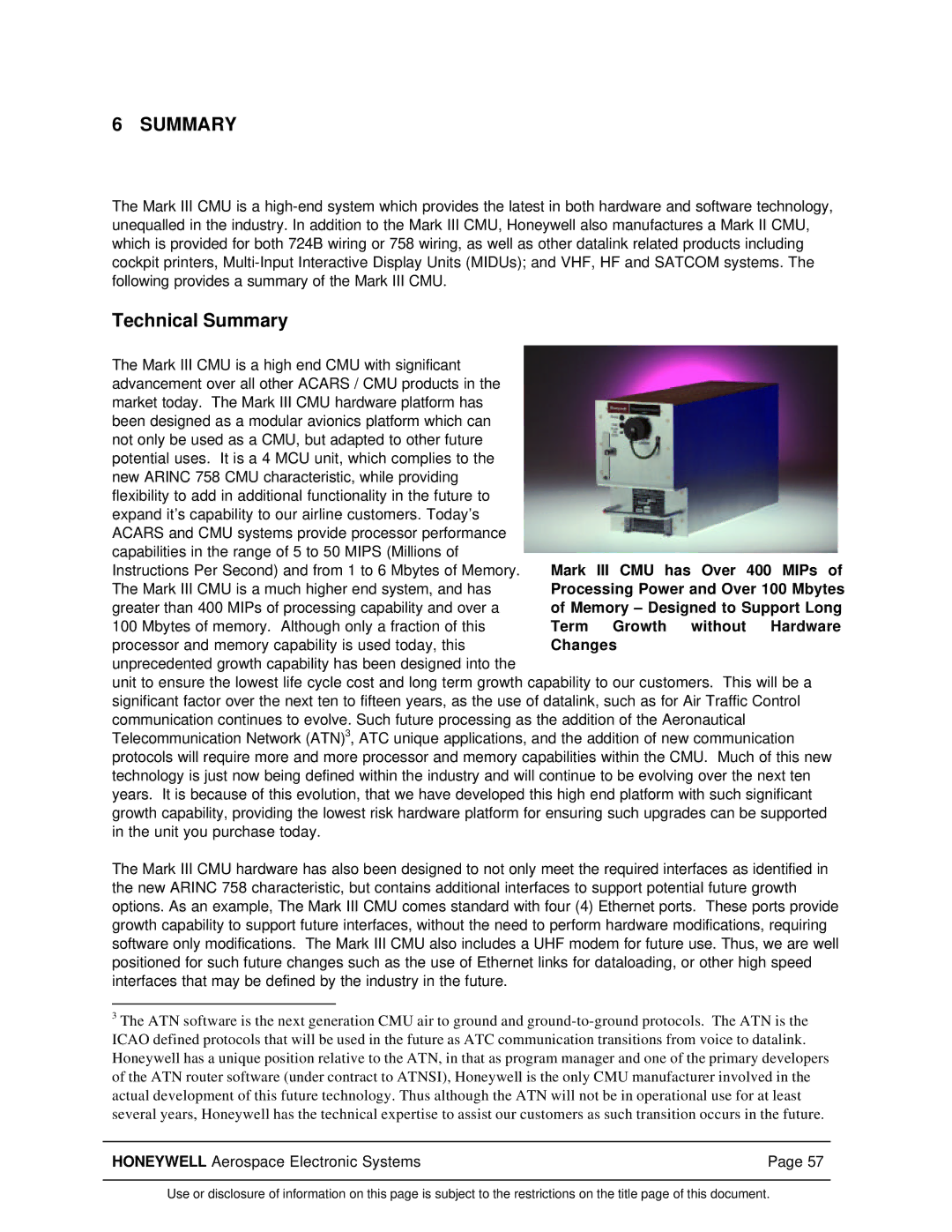
6 SUMMARY
The Mark III CMU is a
Technical Summary
The Mark III CMU is a high end CMU with significant |
|
advancement over all other ACARS / CMU products in the |
|
market today. The Mark III CMU hardware platform has |
|
been designed as a modular avionics platform which can |
|
not only be used as a CMU, but adapted to other future |
|
potential uses. It is a 4 MCU unit, which complies to the |
|
new ARINC 758 CMU characteristic, while providing |
|
flexibility to add in additional functionality in the future to |
|
expand it’s capability to our airline customers. Today’s |
|
ACARS and CMU systems provide processor performance |
|
capabilities in the range of 5 to 50 MIPS (Millions of |
|
Instructions Per Second) and from 1 to 6 Mbytes of Memory. | Mark III CMU has Over 400 MIPs of |
The Mark III CMU is a much higher end system, and has | Processing Power and Over 100 Mbytes |
greater than 400 MIPs of processing capability and over a | of Memory – Designed to Support Long |
100 Mbytes of memory. Although only a fraction of this | Term Growth without Hardware |
processor and memory capability is used today, this | Changes |
unprecedented growth capability has been designed into the |
|
unit to ensure the lowest life cycle cost and long term growth capability to our customers. This will be a significant factor over the next ten to fifteen years, as the use of datalink, such as for Air Traffic Control communication continues to evolve. Such future processing as the addition of the Aeronautical Telecommunication Network (ATN)3, ATC unique applications, and the addition of new communication protocols will require more and more processor and memory capabilities within the CMU. Much of this new technology is just now being defined within the industry and will continue to be evolving over the next ten years. It is because of this evolution, that we have developed this high end platform with such significant growth capability, providing the lowest risk hardware platform for ensuring such upgrades can be supported in the unit you purchase today.
The Mark III CMU hardware has also been designed to not only meet the required interfaces as identified in the new ARINC 758 characteristic, but contains additional interfaces to support potential future growth options. As an example, The Mark III CMU comes standard with four (4) Ethernet ports. These ports provide growth capability to support future interfaces, without the need to perform hardware modifications, requiring software only modifications. The Mark III CMU also includes a UHF modem for future use. Thus, we are well positioned for such future changes such as the use of Ethernet links for dataloading, or other high speed interfaces that may be defined by the industry in the future.
3The ATN software is the next generation CMU air to ground and
HONEYWELL Aerospace Electronic Systems | Page 57 |
Use or disclosure of information on this page is subject to the restrictions on the title page of this document.
